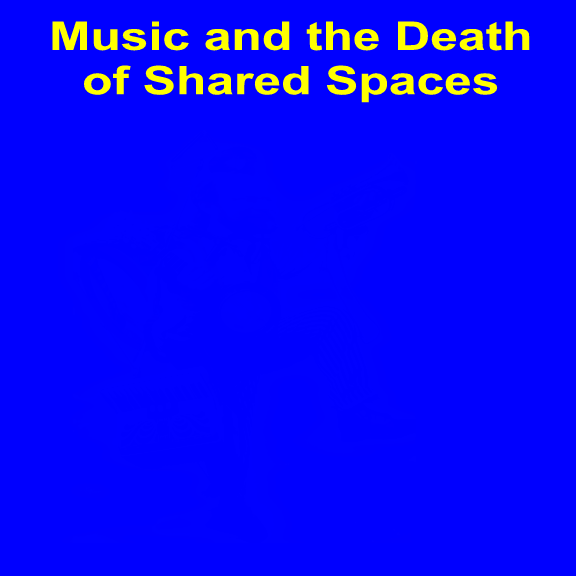I play in a town band (or at least, I do in years without pandemics) that has been around since 1856. I've dug into the history (actually wrote a book about it) which has just extended my lifelong interest in popular music and culture, and if you trace all of that history, I think you can see how we ended up where we are, both politically and in the education world.
As the 19th century turned into the 20th, music was almost exclusively a rare, shared experience. You could only listen to music that was live. If you had a piano and someone who could play it, maybe you could listen at home (a hit song was one that sold lots of sheet music), but for anything more complex, you had to wait for a band or orchestra performance. As an audience member you had zero control of what you listened to, nor could you pick the where or when.
Pre-1920, the majority of Americans lived in small towns, so entertainment resources were limited. The period of 1880-1920 was the peak for town bands--if you wanted live music, you got some folks together and sis it yourself. There were parallels. In our area, for instance, there was a single amusement park, a destination park owned and run by the trolley company. On major holidays, everyone was there--all the towns, all the members of the family. Opportunities were few, and technology didn't favor personally choosing, so everyone shared the few chances over which they had little control or choice.
In the 1920s, things change. Our local amusement park died, killed by the automobile, a piece of technology that let people decide when and where they wanted to go. Meanwhile, recorded music finally become commercially viable. Suddenly, you can buy a pressed recording of a song that you like and listen to it any time you want in the comfort of your own home.
The next few decades gave us improved record technology and better automobiles, which expanded personal control and choice. They also saw the rise of radio, CONTINUE READING: CURMUDGUCATION: Music and the Death of Shared Spaces



